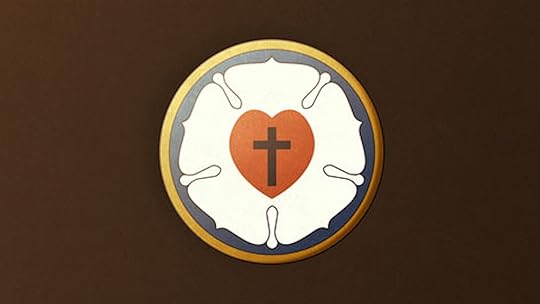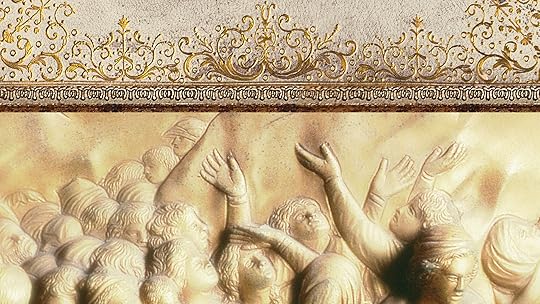R.C. Sproul's Blog, page 30
February 18, 2021
$5 Friday (And More): Evangelism, Christian Living, & Church History

It’s time for our weekly $5 Friday sale. This week’s resources include such topics as evangelism, Christian living, church history, the apostles, William Tyndale, predestination, and more.
Plus, several bonus resources are also available for more than $5. These have been significantly discounted from their original price. This week’s bonus resources include:
Recovering the Beauty of the Arts with R.C. Sproul, DVD $45 $15 Everyone’s a Theologian by R.C. Sproul, Audiobook CD $25 $10 The Great Commission with Burk Parsons, Blu-ray $36 $15 The Daring Mission of William Tyndale by Steven Lawson, Hardcover book $16 $5 Jesus the Evangelist by Richard Phillips, Hardcover book $19 $9And MoreSale runs through 12:01 a.m.–11:59 p.m. Friday ET.
View today’s $5 Friday sale items.


The Fear of the Lord: February 18, 2021

The fear of the Lord is the beginning of wisdom (Prov. 9:10)—but what does it mean to fear God? Should Christians be afraid of their Creator after He has reconciled them to Himself?
Recently, Dr. Michael Reeves and Ligonier Teaching Fellow Dr. Burk Parsons joined our president and CEO, Chris Larson, for a discussion on the fear of God. On February 18, we streamed this discussion as they considered why this neglected and often-misunderstood subject is so important for Christians living in a world that treats God lightly.
This special event was streamed on Ligonier’s blog, YouTube, Facebook, and Twitter. You can also watch a recording of the discussion below.


Wives of Elders
Here’s an excerpt from Wives of Elders, Iver Martin's contribution to the February issue of Tabletalk:
It ought to be no surprise that the wives of church leaders are given such prominence in 1 Timothy 3. When the Lord calls a man into leadership, He calls his wife to accompany and support him. The role of “helper” in Genesis 2:20 presupposes a task for which the man requires assistance. He can’t do it alone; hence God makes provision by creating a perfect human companion. Her skills are not the same as his, but she will be part of what he needs to fulfill the commission that God has given. It is obvious from 1 Timothy 3:11 that this “complementarian” duo finds expression in the church where, by sharing with his wife, an elder can benefit from a more nuanced perspective that would be foolish to dismiss. He may leave her behind when he goes into an elders’ meeting, but for the most part, as he fulfills his regular responsibilities, she is right there beside him playing a vital role. God has united elders and deacons to wives who complement them in character and gifts.
Continue reading Wives of Elders, or begin receiving Tabletalk magazine by signing up for a free 3-month trial.
For a limited time, the new TabletalkMagazine.com allows everyone to browse and read the growing library of back issues, including this month’s issue.


February 17, 2021
Martin Luther’s Death and Legacy

Martin Luther died on February 18, 1546. One month before, he wrote to a friend complaining of the infirmities of his age, "I, old, weary, lazy, worn-out, cold, chilly, and, over and above, one-eyed man." He then sighs, "Half-dead as I am, I might be left in peace."
Luther, however, would not be left in peace. His hometown of Eisleben faced a crisis. A dispute threatened the civil order and even the ecclesiastical order. Worn out as he was, Luther decided to travel to his hometown to settle the dispute. He set out from Wittenberg with his three sons, and a few servants. They made it to Halle. Ice and storms made crossing the rivers a challenge. Luther alternated between naming chunks of ice, floating directly toward their ferry, as Anabaptist opponents and as Roman Catholic bishops and popes. He might have been half-dead, but his humor was fully intact.
Halle was the home of Luther's longtime associate, Dr. Justus Jonas. Since the debate at Leipzig in 1519, Jonas was one of Luther's closest disciples. Jonas stood by him at the Diet of Worms. He moved the Reformation forward at Wittenberg, while Luther was in exile at the Wartburg. And now Justus Jonas would accompany Luther on his last trip.
Luther and his enlarged traveling party made a triumphal entry in to Eisleben. The hometown hero was welcomed with cheering crowds and escorted by a cavalcade. He preached that Sunday, January 31.
But the journey had taken its toll. Luther wrote to his beloved Katie of bitter winds and freezing rains, not to mention all those threatening chunks of ice. Luther was severely ill. An out of control fire, right outside of Luther's room, also threatened his life. His room itself was precarious. Plaster fell from the walls, which loosened a few of the stones from the wall. One stone, reported to be the size of a pillow, came rather close to crashing down upon the head of Luther. These misadventures gave reason for Katie to grow anxious back at home. She fired off a letter full of anxiety and worry. So Luther wrote back that he missed her, adding, "I have a caretaker who is better than you and all the angels; he lies in a manger and nurses at his mother's breast, yet he sits at the right hand of God, the Almighty Father."
Luther wrote that letter on February 7. Eleven days later he died. Eisleben, the town of his birth, would also now be known as the town of his death. Luther's three sons would accompany their father's body back to Wittenberg, where crowds would gather to pay final respects.
Just before he died, Luther preached what would be his last sermon from his deathbed in Eisleben. The "sermon" consisted of simply quoting two texts, one from the Psalms and one from the Gospels. Luther cited Psalm 68:19, "Blessed be the Lord, who daily bears us up; God is our salvation." Then he cited John 3:16. Our God is indeed a God of salvation, and that salvation comes through the work of His Son.
Lucas Cranach, the painter, offered a final memorial to his friend. That painting graces the altar in the Castle Church. In it Luther is preaching as a crowd listens on. Cranach painted Luther's wife, Katie, into the picture. He also painted Luther's daughter, Magdalena, who died when she was thirteen, into the picture. In between Luther and his congregation is Christ. Luther preached Christ, and Him crucified. And when his congregation heard Luther preach, they did not see Luther but instead saw Christ and Him Crucified. That is Luther's legacy.
And that legacy extends far beyond Luther's own day.
In 1940, W. H. Auden offered a poetic tribute to Luther and his legacy. He titled his short poem 'Luther," ending it with these lines:
All Works, Great Men, Societies are bad.
"The Just shall live by Faith..." he cried in dread.
And men and women of the world were glad,
Who'd never cared or trembled in their lives.
Dr. Stephen J. Nichols is president of Reformation Bible College and chief academic officer for Ligonier Ministries, and teaches on the podcast 5 Minutes in Church History.


February 16, 2021
Explore Our YouTube Channel

You can stream trustworthy teaching from R.C. Sproul, the Ligonier Teaching Fellows, and other gifted teachers for free on our YouTube channel. With over 1,500 videos to date and new videos uploaded each week, you can watch reliable, truth-proclaiming content each day. It’s also easy to share these videos with your family and friends. Subscribe today and turn on notifications to access a wealth of video resources that expound the Word of God and apply Scripture to daily living.
Throughout the week, you can:
Watch full teaching series messagesAttend livestreamed events, such as Ask Ligonier, various panel discussions, conferences, and moreListen to sermons from R.C. SproulView insightful moments from our teaching series collectionSee your questions answered from prior live eventsMake sure you subscribe and turn on notifications so you won’t miss upcoming livestreams, teaching series, and much more.
Did you know that Ligonier has YouTube channels in other major world languages? Tell growing Christians about the wealth of video teaching that they can freely access in Arabic, Chinese, Farsi, and Spanish.
SUBSCRIBE & STREAM


Dying to Sin and Living to Righteousness
Here’s an excerpt from Dying to Sin and Living to Righteousness, Mark G. Johnston's contribution to the February issue of Tabletalk:
There is no religion in the history of the world that contains an invitation remotely like the Christian gospel. From its very inception, in the words of Christ, we are told, “If anyone would come after me, let him deny himself and take up his cross and follow me” (Mark 8:34). It is, as John Piper points out, an invitation to die.
This has always been counterintuitive to us. From our earliest years, we want to seize life with both hands and seek to live it to the full. Where, then, is the magnetism in Jesus’ words that has drawn so many people to Him through the ages?
Continue reading Dying to Sin and Living to Righteousness, or begin receiving Tabletalk magazine by signing up for a free 3-month trial.
For a limited time, the new TabletalkMagazine.com allows everyone to browse and read the growing library of back issues, including this month’s issue.


February 15, 2021
How Should We Pray When Natural Disasters Strike?

How should we pray to our sovereign God when hurricanes beat against the coast and wildfires sweep the land? From one of our Ask Ligonier events, Sinclair Ferguson counsels us to pray for what truly matters when disaster strikes.
Message us for clear, concise, and trustworthy answers to your biblical and theological questions at ask.Ligonier.org.
Read the Transcript


Is Jesus Knocking at the Heart of the Unbeliever?

We have all heard evangelists quote from Revelation: "Behold, I stand at the door and knock. If anyone hears My voice and opens the door, I will come in to him and dine with him, and he with Me" (Rev. 3:20). Usually the evangelist applies this text as an appeal to the unconverted, saying: "Jesus is knocking at the door of your heart. If you open the door, then He will come in." In the original saying, however, Jesus directed His remarks to the church. It was not an evangelistic appeal.
So what? The point is that seeking is something that unbelievers do not do on their own. The unbeliever will not seek. The unbeliever will not knock. Seeking is the business of believers. Jonathan Edwards said, "The seeking of the Kingdom of God is the chief business of the Christian life." Seeking is the result of faith, not the cause of it.
When we are converted to Christ, we use language of discovery to express our conversion. We speak of finding Christ. We may have bumper stickers that read, "I Found It." These statements are indeed true. The irony is this: Once we have found Christ it is not the end of our seeking but the beginning. Usually, when we find what we are looking for, it signals the end of our searching. But when we "find" Christ, it is the beginning of our search.
The Christian life begins at conversion; it does not end where it begins. It grows; it moves from faith to faith, from grace to grace, from life to life. This movement of growth is prodded by continual seeking after God.
In your spiritual walk, are you moving from faith to faith, from grace to grace, from life to life? Are you continually seeking after God?


February 13, 2021
The Epistle of Joy

In every situation, even the most difficult trial in life’s darkest hour, Christians have a reason to rejoice. In this brief clip, R.C. Sproul encourages us to look to the future with genuine optimism, trusting that God and His promises will prevail.
Transcript:
Philippians is one of my favorite epistles of the Apostle Paul, and it is called in church history “the epistle of joy.” Because again and again in this letter, Paul speaks of his own joy, which is infectious, and he then encourages the people at Philippi to participate in the joy that Paul is experiencing—and that while he is writing to them from imprisonment! And he said, “I rejoice; therefore, you rejoice as well.” And Paul, at that time, is anticipating the possibility of his own imminent demise, but he looks forward to the future with joyous anticipation. And this is a theme, of course, that’s not found merely in the Philippian correspondence, but it’s found throughout the writings of the Apostle. And so frequent is this motif of joy that I think it is safe to say that this fruit of the Holy Spirit is something that should be evidenced and manifest to some significant degree in every true Christian’s life. Yes, we are to participate in the mourning and the sorrows of this world and be willing to go through the valley of the shadow of death for the sake of Christ. And yes, there are times when we are cast down but not destroyed and we sorrow. But the basic posture of the Christian should be one of joyous optimism, because we know in whom we have believed, and our trust is in Him, and we know that God certainly will prevail. So, there is a reason for our joy.


February 12, 2021
Am I Not Elect Because I Don’t Know the Moment I Was Born Again?
Should a Christian question his salvation if he doesn't know the moment when he was born again? From one of our live events, H.B. Charles Jr., Steven Lawson, and Derek Thomas provide pastoral wisdom for concerned believers. To get real-time answers to your biblical and theological questions, just ask Ligonier.
Read the Transcript


R.C. Sproul's Blog
- R.C. Sproul's profile
- 1969 followers



